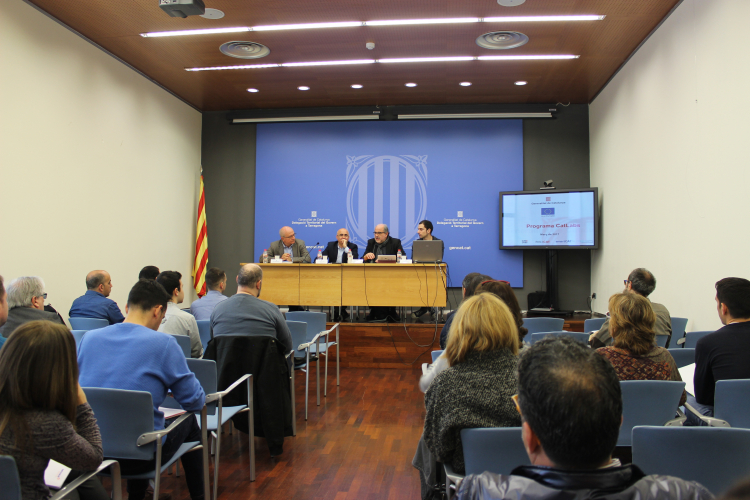The session has been developed at the headquarters of the Delegation of the Government in Tarragona and has been welcomed by the regional delegate, and Òscar Peris i Ròdenas.
"We want to bring social innovation digital to the citizen and see what proposals and projects already exist and want to be part of a program of the Catalan government," stressed Ricard Faura. Recently, Catalonia is experimenting an explosion of " labs". The infrastructure of the Internet has allowed various stakeholders and actors in the region access to policies of innovation, which is not restricted to large companies and universities". In the spiral of social innovation we have a challenge, and we need to introduce a systemic change in the way to solve it".
A good example, as one of the participanst said at the meeting, are training schools with their project "Innova FP". It is a program which develops education for innovation, which in itself is a great social innovation. Lourdes Sánchez, coordinator of "Innova FP" at Cal·lípolis highschool, says that "CatLabs can be a very interesting initiative, especially for the network that we have articulated around innovation programs, we contact with the company, nonprofits, social agents, etc. in order to respond to innovative ideas that have the students".
The model of CatLabs wants to demonstrate and incorporate these experiences to the official system of innovation. Agents such as telecentres, municipalities, county councils, coworking spaces, laboratories of digital manufacturing and, above all, citizens can create a space for participation and collaboration likely to receive EU support through new lines of work: RISC3cat, Smartcat and the National Agreement for the Digital Society.
According to program managers of CatLabs, it has incorporated the small and medium cities on a digital social innovation system. The combination of resources from different actors in the territory, under the model of innovation can be a distinct advantage. In the end, it is defined "as it should be the model of digital social innovation", ie, the structure in each territory, imitating the collaborative model of the economy, but in relation to innovation.
"The engagement between the university and other knowledge agents that may be related to strategic innovation is fully within our scope," says Josep Maria Pinyol, Chair of University and Knowledge Region University Rovira i Virgili.
A good starting point would be "to know, at regional level, who we are, who you are and what you want to do: identify the needs and opportunities for complementarity and collaborate," said Jordi Rodríguez, who works in different projects of digital social innovation in the telecetre Campclar.



